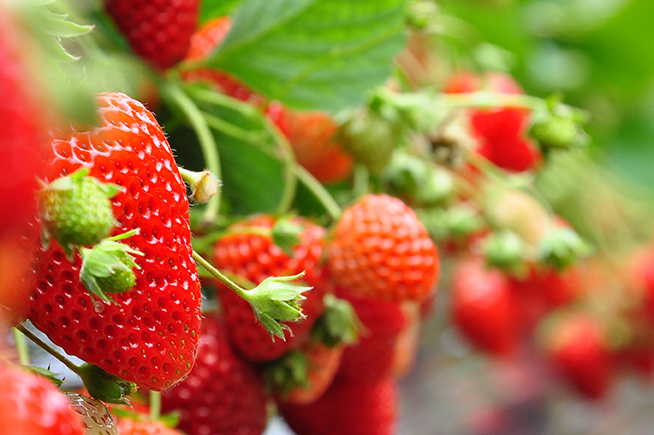Potatoes Are Good For You

“Too much coffee can make you fat.”
“100,000 lives saved if salt lowered.”
“Want to lose weight? Eat bugs!”
Do a quick online search of “new food study” and you will come across hundreds of news articles like these that breathlessly inform consumers of the latest scientific studies proving — for once, and for all! — that a certain food is good for you or another is bad.
While dramatic headlines may sway a segment of the population to drastically alter their eating habits, many consumers are instead choosing to tune out advice from the nutrition community completely, fed up with the mixed messages when today’s headline contradicts the results of yesterday’s study.
Lost in the flood of seemingly well-intended recommendations is the fact that the vast majority of people are ignoring the guidance my mother drilled into me and my siblings: eat your fruits and vegetables.
Vegetable Consumption Down
I learned at a young age that leaving the dinner table was predicated upon me finishing my green beans. However, despite the daily barrage intended to encourage healthier eating, nine out of 10 Americans today come up woefully short in meeting the USDA-recommended intake of fruits and vegetables.
One would think that health researchers would be focused on promoting studies that encourage the elimination of the U.S. fruit and vegetable consumption gap, yet a number of studies do the exact opposite. For example, there is the dreaded “Dirty Dozen” list, which annually scares some consumers into believing the produce aisle is a pesticide-residue haven and may actually promote the consumption of less healthy food items.
The potato industry, specifically, has been a frequent focus of academic health disrespect. When the Harvard School of Public Health released its own version of the federal government’s MyPlate guidelines, it removed potatoes from the vegetable section, stating that potatoes should be in a separate, lower-value category.
Another study published in the New England Journal of Medicine argued that potatoes in any form — boiled, baked, or fried — are behind some people’s weight gain; they conveniently left out that those people also ate a lot of other food that could have contributed to their weight gain.
The Truth Comes Out
The anti-potato clamor became so loud that the industry came together to create the Alliance for Potato Research and Education (APRE), to put forward the truth about potato nutrition, backed by data and facts.
Recently, APRE released a study showing that white vegetables, which some mistakenly consider devoid of nutrients since they are not colorful, are just as important to a healthy diet as their green, red, and yellow cousins in the produce aisle. While the government recommends the daily consumption of a variety of colorful fruits and vegetables, no such recommendation exists for white vegetables, even though they are rich in the very nutrients that are under-consumed by Americans.
The APRE study identified a substantial body of evidence that demonstrates how the inclusion of white vegetables, such as potatoes, can increase intake of shortfall nutrients, such as dietary fiber and potassium, as well as help increase overall vegetable consumption among U.S. children and adults.
Another study, conducted by Dr. Adam Drewnowski of the University of Washington, found that potatoes are not only cost-effective and nutrient-dense, they are a vegetable kids actually eat, giving parents and school foodservice professionals a great option for delivering nutrients to children.
Unfortunately, the simplified health directives of “eat this/not that” also find their way into federal public policy. For example, in 2011, NPC fought off efforts by USDA to place arbitrary limits on the number of times potatoes and other starchy vegetables were served in school lunches.
More recently, NPC is working to remove a ban on fresh white potatoes in USDA’s WIC (Women, Infants, and Children) program, which provides supplemental nutrition to low-income women and their young children. In spite of data showing the WIC participants under consume vegetables in the starchy category, USDA argues that WIC participants already eat “too many” potatoes.
While it is true that potatoes are the most frequently consumed vegetable, popularity alone does not provide a sound nutritional justification for banning potatoes from the program. After all, just because apples are the most frequently purchased fruit, no one argues that people are eating “too many” of them.
With 90% of Americans not getting enough fruits and vegetables in their diet, we think researchers, the media, and our government should focus on promoting real nutritional facts over sensational hype when communicating messages to consumers.










